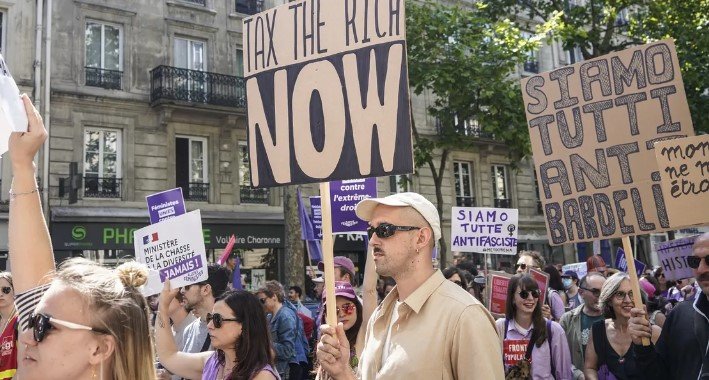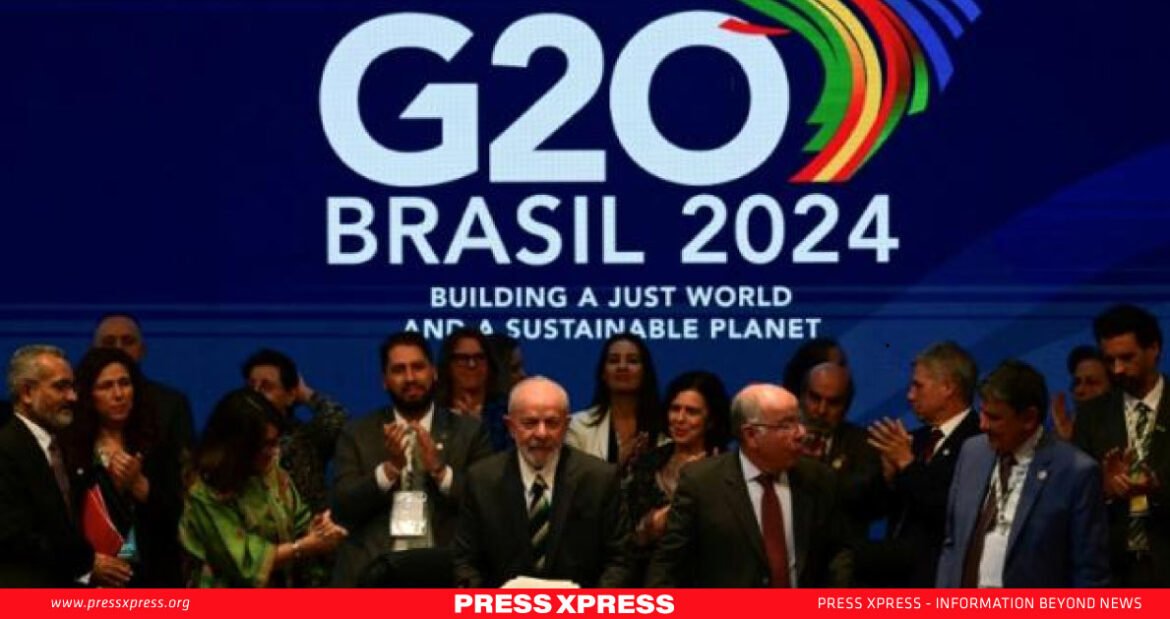Oxfam’s latest report, released ahead of the G20 summit in Brazil, reveals a staggering increase in wealth concentration among the world’s richest one percent. Over the past decade, this elite group has accumulated an additional $42 trillion, nearly 36 times more than the wealth gained by the poorer half of the global population.
You can also read: Propagating Misinformation: The International Context
Despite this enormous windfall, the NGO points out that tax rates on the ultra-wealthy have dropped to ‘historic lows.’ Oxfam describes this situation as creating ‘obscene levels’ of inequality, with the majority of the world’s population left to ‘scrap for crumbs.’ The report highlights that globally, billionaires have been paying tax rates equivalent to less than 0.5% of their wealth, illustrating a significant disconnect between wealth accumulation and tax contributions.
Brazil’s G20 Presidency and the Push for Global Tax Reform
Hosting the G20 summit in Rio de Janeiro, Brazil has made international cooperation on taxing the super-rich a priority. The G20, representing 80% of the world’s GDP, is set to discuss methods for raising levies on the ultra-wealthy and preventing tax evasion by billionaires.
The initiative involves determining new approaches to tax billionaires and other high-income earners. However, the proposal has received mixed reactions among G20 members. Countries such as France, Spain, South Africa, Colombia, and the African Union support the initiative, while the United States is firmly opposed. This division highlights the complexity of implementing global tax reforms and sets the stage for potentially intense debates during the summit.

Oxfam’s Call to Action and the G20’s Crucial Role
Oxfam has called the summit a ‘real litmus test for G20 governments,’ urging them to implement an annual net wealth tax of at least eight percent on the ‘extreme wealth’ of the super-rich. Max Lawson, Oxfam International’s head of inequality policy, emphasized that the ‘momentum to increase taxes on the super-rich is undeniable,’ while questioning whether political leaders have the will to prioritize the needs of the many over ‘the greed of an elite few.’
The NGO’s report also notes that nearly four out of five of the world’s billionaires reside in G20 nations. As the summit progresses, the world watches to see if global leaders can forge a path toward more equitable taxation and wealth distribution. The outcomes of this summit could have far-reaching implications for global economic policies and efforts to address the widening wealth gap, potentially setting a new standard for how the international community approaches taxation of the ultra-wealthy.
Why Wealth Inequality on Every Continent?
In today’s rapidly changing world, the vast gap between the rich and the poor is more apparent than ever. It’s like a glaring spotlight on the pervasive inequality that exists all around us. The dominance of large corporations and global capitalism often overshadows the daily struggles of ordinary people, normalizing inequality and attributing poverty to individual failings or ineffective governance.
Organizations like the World Bank, which are supposed to help alleviate these issues, sometimes appear more focused on preserving the status quo rather than addressing the root causes of inequality. They promote the idea of equal opportunity but often miss the mark on tackling deeper systemic issues.
Currently, a mere 1% of the world’s population controls approximately 70% of global wealth. To put this in perspective, ten individuals hold more financial resources than the combined wealth of 3.1 billion people at the bottom of the socioeconomic ladder, as highlighted by an Oxfam report. This elite group lives in a realm of affluence unimaginable to 80% of humanity.
Top Wealthiest Individuals
- Elon Musk (Tesla): $219 billion
- Jeff Bezos (Amazon): $171 billion
- Bernard Arnault (LVMH): $158 billion
- Bill Gates (Microsoft): $129 billion
- Warren Buffett (Berkshire Hathaway): $118 billion
Global Wealth Disparities
Income Distribution:
- The richest 10% of the global population holds 52% of the world’s income
- In stark contrast, the poorest half of the population earns just 8% of the global income
- On average, a person in the top 10% earns around $122,100 annually, while someone in the bottom half earns merely $3,920
Wealth Distribution:
- The poorest half of the population owns just 2% of the global wealth
- Meanwhile, the richest 10% controls a staggering 76% of all wealth
Among the wealthiest individuals are familiar names: Elon Musk, the visionary behind Tesla, with a fortune of $219 billion; Jeff Bezos, the founder of Amazon, with $171 billion; Bernard Arnault of LVMH, with $158 billion; Bill Gates, co-founder of Microsoft, with $129 billion; and Warren Buffett of Berkshire Hathaway, with $118 billion.
As the world watches, the effectiveness of these discussions could determine the future approach to taxation and wealth distribution, potentially reshaping global economic strategies.
What is Oxfam?
Oxfam is a global confederation of 21 independent non-governmental organizations (NGOs) focused on alleviating global poverty. Founded in 1942 as the Oxford Committee for Famine Relief in Oxford, UK, Oxfam originally aimed to address hunger during and after World War II. By 1970, the organization had expanded internationally, with branches in India, Australia, Denmark, and North America.
Oxfam International, established to coordinate these efforts, focuses on combating inequality and poverty worldwide. The organization provides life-saving support in crises and advocates for economic justice, gender equality, and climate action. Oxfam’s mission is to ensure that everyone can thrive, not just survive, by promoting equal rights and fair treatment for all.
In recent years, Oxfam has faced controversies, particularly concerning its operations in Haiti and Chad, as well as management issues in the UK. Despite these challenges, Oxfam continues its work towards a more just and equitable world.


